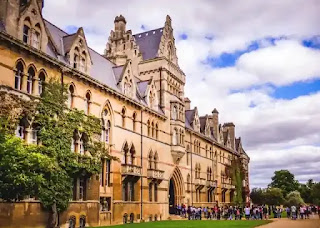Studying abroad requires you to be prepared for an entirely different environment than what you're accustomed to. If you want to succeed, it's important that you know what to expect. You'll want to take a little time to get to know your destination country before you start, and that includes knowing a few things about the country's education system.
1- Set the budget for your studies
Of course, it will be healthier for you or your family to determine the budget of your Abroad MBBS education and make decisions according to this budget. International education can be expensive, but here are some things you can do to study abroad on a budget, such as: Look for countries with relatively affordable tuition fees;

2- Choose the right country and the right university for your MBBS abroad plan.
Choosing the right country for your study abroad journey depends on many factors, such as living conditions, cultural differences, spoken language, distance to the country where you live, climatic conditions, accommodation, tuition fees, and available post-study work opportunities.
Russia, Moldova, Philippines, Georgia and Kyrgyzstan are among the top study abroad countries for indian students. However, you can make a more accurate decision on the choice of country, considering the field you’ll study and the popular professions in that country.
Choose wisely to make the best out of your study abroad journey.
Our consultants at Edu Infoseas can help you find the right university and course for you. They will give their feedback and advice to choose the right course at the right place to study MBBS abroad.
3- Prepare for the exams
College admission requirements vary, depending on the institution. You need to make sure you know all about their admission requirements (including academic results, prerequisites, letters of recommendation, essays, required exams). You need to also check if the university or the institution require specific exams as a prerequisite to be accepted.
4- Student Accommodation
Contact your university for the accommodation facilities and they will often help you out with this. Also, register yourself on www.isic.org to get an international student ID card.

5. On arrival
The first thing you are supposed to do is register yourself with the internal affairs ministry within 24 to 48 hours. Registration will help you to legalise your stay in that country and later may help you in getting temporary residence abroad. This may be your gateway to getting residency, but there are different rules for different countries which you will have to understand thoroughly.
The next important thing is to register at the local Indian embassy. There you will find people with whom you can talk in Indian language and that will somewhat reduce the feeling of homesickness. The people at the embassy might also help in solving any of the problems you are facing in the country of your stay.
